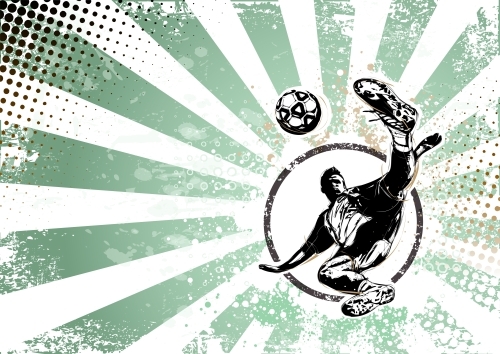In its ruling of 18 July the Court of Justice dismisses the appeal brought by FIFA and UEFA against the judgments of the General Court on television broadcasts of the World Cup and the EURO.
The law
The directive89/552/EEC concerning the pursuit of television broadcasting activities authorises the Member States to prohibit the exclusive broadcasting of events which they deem to be of major importance for society, where such broadcasts would deprive a substantial proportion of the public of the possibility of following those events on free television. Member states draw up list of major events and the European Commission decides if these events are not contrary EC law.
The case

The Fédération internationale de football association (FIFA) organises the final stage of the football World Cup and the Union des associations européennes de football (UEFA) organises the final stage of the European football championship (‘the EURO’). Sales of television broadcasting rights for those competitions make up a significant part of their revenues. Belgium and the United Kingdom each drew up a list of the events they regarded as being of major importance for society. Those lists contained, inter alia, all the matches in the final stage of the World Cup and the EURO. Those lists were sent to the Commission, which decided that they were compatible with European Union law.
FIFA and UEFA challenged those decisions before the General Court, arguing that not all those matches could constitute events of major importance for the general public in those States. The General Court (former Court of First Instance) in its rulings of 17 February 2011 dismissed their actions which led them to lodge appeals before the Court of Justice.
Right of information and major public events
In today’s judgments, the Court of Justice notes that the designation by a Member State of certain events as being of major importance for society and the prohibition on their exclusive broadcasting constitute obstacles to the freedom to provide services, the freedom of establishment, the freedom of competition and the right to property. However, such obstacles are justified by the objective of protecting the right to information and ensuring wide public access to television coverage of those events. Member States alone may determine the events which are of major importance and that the Commission’s role in that respect is limited to determining whether the Member States have complied with European Union law in exercising their discretion.
Not all football matches are of equal importance
The general public tends to attach particular importance to decisive matches– such as the final and semi-finals – and those involving the national team. According to the Court the World cup and the EURO must be regarded as events which are, in principle, divisible into different matches or stages, not all of which are necessarily capable of being characterised as an event of major importance. The General Court found, in the light of the actual perception of the public, that all the matches in the final stages of those two tournaments actually attracted sufficient attention from the public to form part of an event of major importance and not only viewers who generally follow football matches on television. The Court points out that those competitions have traditionally been broadcast on free television channels in those Member States.
In practice
Even if FIFA and UEFA had won their case, World Cup finals games featuring England and Belgium would have remained free to watch in these countries, as would the opening games, semi-finals and the final. But it was the other dozens of games featuring say Nigeria or Portugal in non-decisive stages that should not be shown for free in the UK or Belgium. The EU Court has put an end to these matches being available only via pay-TV-channels.
Reactions
FIFA has reacted with disappointment to the decision of the European Court of Justice. For its part, UEFA warned that amateur football would suffer from the lost revenue.
The ruling “reduces the possibility to generate income that can then be distributed to the amateur game via solidarity payments,” (EUObserver).
More information
The full text of the judgments (C-201/11 P, C-204/11 P and C-205/11 P) are published on the CURIA website on the day of delivery.
Council Directive 89/552/EEC of 3 October 1989 on the coordination of certain provisions laid down by law, regulation or administrative action in Member States concerning the pursuit of television broadcasting activities (OJ 1989 L 298, p. 23), as amended by Directive 97/36/EC of the European Parliament and of the Council of 30 June 1997 (OJ 1997 L 202, p. 60).
Judgments of 17 February 2011 in Cases T-385/07, T-55/08 and T-68/08 FIFA and UEFA v Commission, see also Press Release 9/11.
Public broadcasting and European law : a comparative examination of public service obligations in six Member States/ Katsirea, Irini. 2008. Available in the EP library.








[…] Finally, we are happy to have our once most active blogger Geert back for a guest blog on a very interesting issue: Football fans from Belgium and the UK may finally breathe a sigh of relief on the latest decision of the Court of Justice on television broadcasts of the World Cup and the EURO. Find out more in this summary. […]
Thanks for sharing this information “Free football for everyone, EU court rules”. Court of Justice provide the good decision for the dreamers of football game.